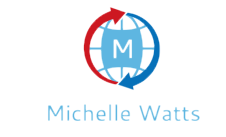Within the realm of SEO, What works today may not work in the future. It might not sound obvious to the ordinary businessperson, but that’s what happens in the SEO business. This blog will simplify SEO language into terms that are easy to understand.
What is SEO
SEO (Search Engine Optimization) is a procedure that assists you in ranking the most relevant keywords on the search engines that are relevant to your business.
Search engine optimization is a method that can assist you in ranking your site for terms you wish to rate for. It’s essential to have a thorough knowledge of SEO since it’s an approach used by most companies online.
The good news is that you can start learning SEO without spending many dollars.
We’ll offer you some suggestions about how to master SEO and then implement it into your site.
Learn the Basics of SEO to Get Started
There are a lot of “gurus” out there that provide instructions on how to do it and even offer advice for a fee. However, the truth is that most of these so-called “experts” don’t know what they’re doing. They simply follow trends and develop their own theories according to their preferences.
In case you’re searching for a person to follow, then follow Google.
Google’s algorithms are upgraded 500-600 times per year, and you are assured that they know how they work.
It is important to keep in mind Google’s mission is to inform users about what they’re looking for.
If you are able to help Google display to people what they’re searching for, you’ll be in the top positions.
To achieve this, you must master four key elements of SEO that you must concentrate on:
Keywords (and keywords targeted)
Search volumes behind keywords
Organic search traffic
Conversions of customers who are searching for your specific keywords
The most effective techniques are based on the following:
Optimization of the page
Link to build
Content
Technical SEO
Keywords
In the past, when there was no SEO, Keywords were the only thing we could use. Keywords, as well as keyword-targeting, were the mainstays of an effective SEO strategy. Keyword targeting meant making pages that were based on certain keywords and then optimizing these pages.
The content will be targeted and based on this keyword.
When advancing your SEO, it is important to consider alternatives that could be viewed as similar to that keyword. However, they might not be recognized as such by search engines.
This could give you the opportunity to incorporate keywords on your site that aren’t directly connected to your business or product to increase retention of readers and enhance the SEO strategy of your site in general.
However, there’s a problem with the use of keywords: they eventually sink into redundancy. Imagine you’re writing about tools for social media.
Suppose your keyword has to contain the term social media. In that case, your keyword will end up being something like “social media-tools” or possibly “best social-media-tools”–painfully long and redundant keywords that reduce SEO traffic because it turns out that there just isn’t a high demand for “best social media-tools.”
In recent times, however, changes in trends have occurred.
Content creators and publishers are focusing on issues and entities in the field of SEO keyword strategies.
Topics and Entities
What are entities and topics specifically?
Topics are Topic is a topic or category that is addressed in the text. The term “entity” refers to an entity as a subject or object which is discussed in a text. It could be an individual, location, or even a thing. If you’re writing about a particular topic, such as SEO is the appropriate term. You could include a particular entity, such as Google.
If you wanted to write a piece about SEO, you’d want to mention the company’s name, Google, in your text.
What you get is an article on SEO that mentions Google within it.
Search Volumes Behind Keywords
Keyword research is a crucial aspect of SEO because it determines which keywords are the most relevant to your business and the number of people looking for those specific keywords.
These two data elements are crucial in determining the competitiveness of a keyword (how difficult it is to get a position on a particular keyword) and what your intended market is looking for that will help you develop relevant content.
Here are some tools for keyword research to help you discover keywords to search for:
Google Trends is an unpaid tool that visually shows how long a keyword has been popular in the past.
Google Keyword Planner – offers keyword suggestions to help you choose the most suitable SEO terms.
Google Search Console is a tool that tracks your site’s performance by analyzing organic traffic to your site from search engines.
Traffic Coming From Organic Search
“Organic Traffic” refers to the process used to describe website visitors via natural search channels.
Suppose a user types the query on Google, Bing, or Yahoo!. In that case, they will be presented with results that show websites at the beginning of the page (the first ten websites), and in the sidebar of these results are advertisements (this is known as paid advertisement and is the case when you pay to have your ads show over all the organic results).
If a user clicks one result from the search engine and then visits an online site, this is recorded by analytical tools as organic traffic.
Organic traffic can be described as the most significant traffic you can receive to your site.
It’s more important than Facebook traffic, paid traffic, and traffic generated by other social media platforms.
The reason for this is quite simple: Organic traffic is specifically targeted.
People who type a query into the search engine have a particular purpose. If you can give them the answer to their query, then you are more likely to attract a new customer follower or email subscriber.
Alongside the previously mentioned, organic traffic is essential since it boosts website trust and has various other advantages.
The trust of users is in Google, and sites that are among the top positions on Google naturally are thus also regarded as reliable by the users.
This is a fantastic option to improve your standing both online and off.




















Comments